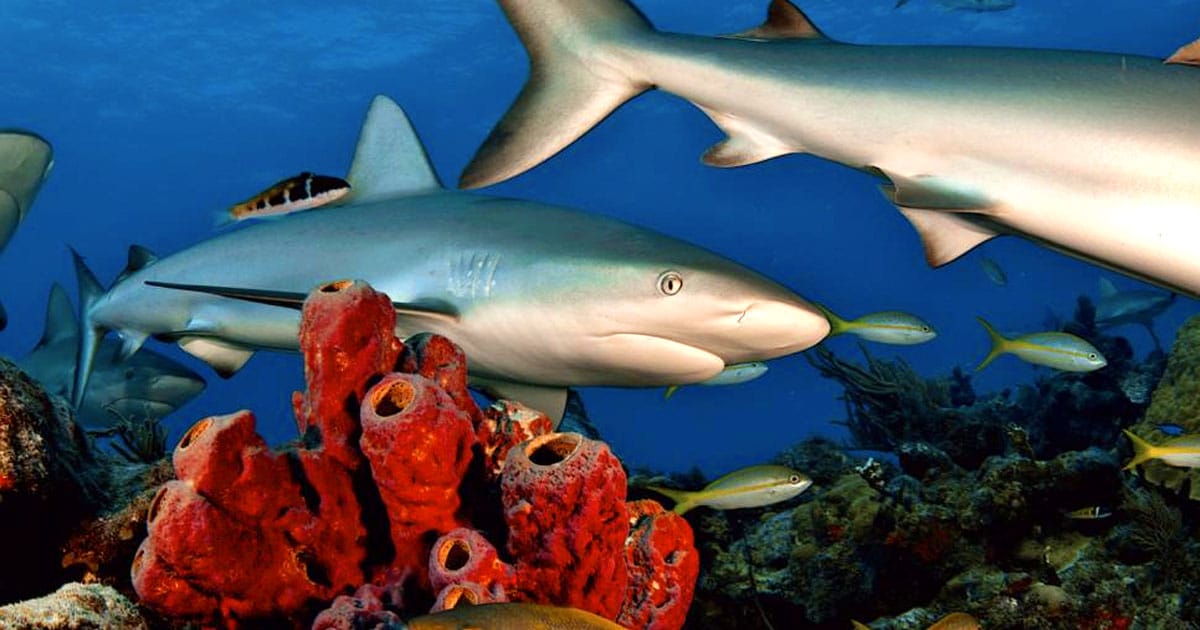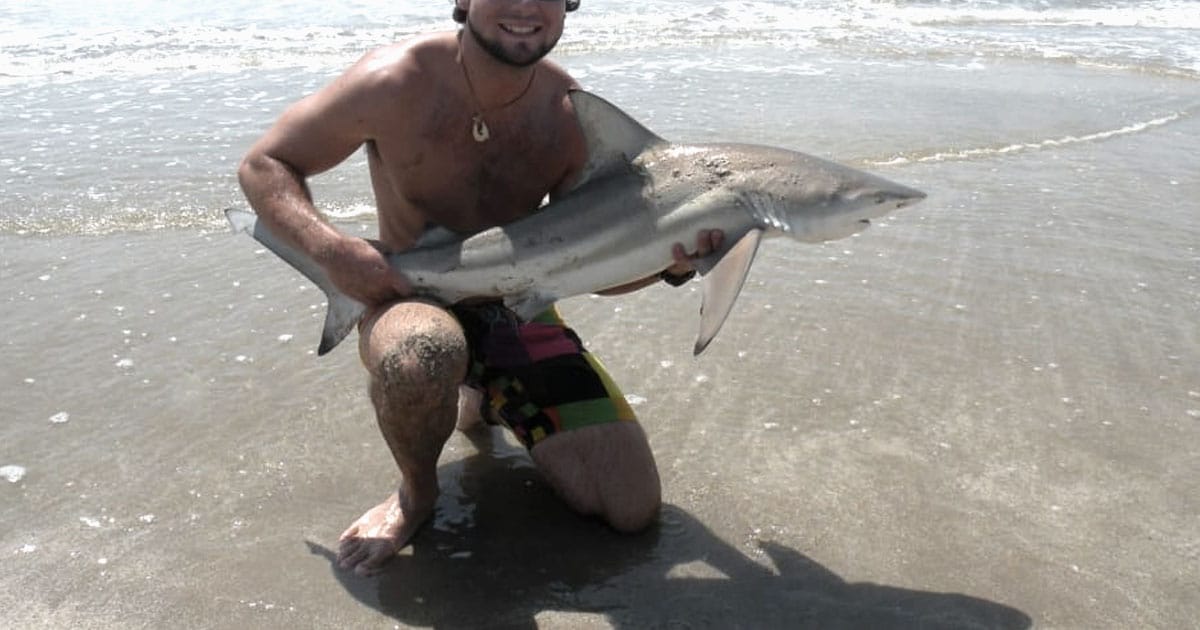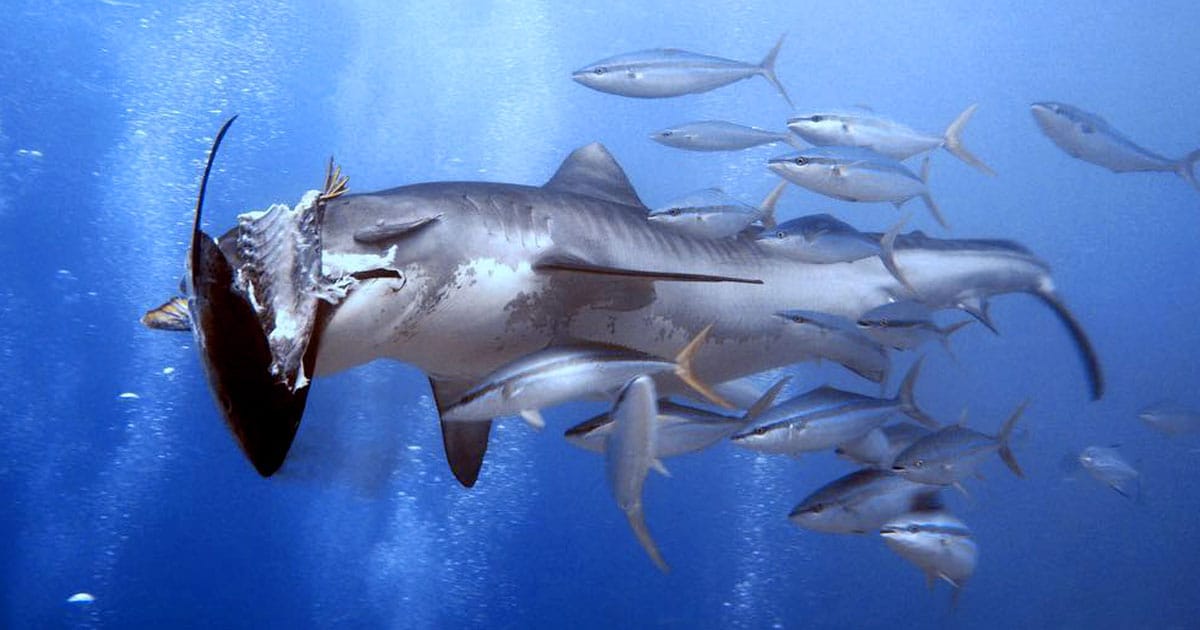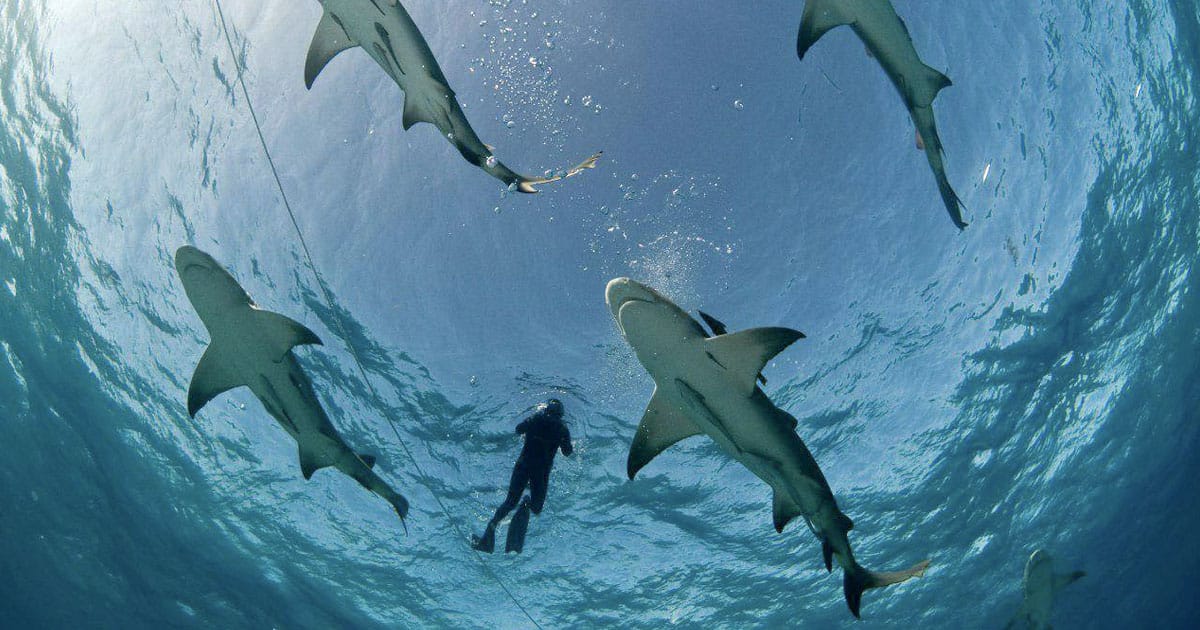Since the beginning of their existence, these aquatic animals have been perceived as killer sharks and lethal, as a result of ignorance and false information that reaches us from sensational news to dramatic science fiction films.
And it is precisely this misperception which makes it difficult to conserve sharks and prevents us from understanding their importance and great biological value.
The ocean is their home, and if we are not able to accept that this is so, that it is where they belong and that it is a blessing that they inhabit the waters of all the seas, we would do well to change our day at the beach and look for an alternative plan.

What are sharks?
In the animal kingdom, they are classified within the group of vertebrates, as fish that lack a bony skeleton, which is made of cartilage. Therefore, the only remains that we can find are those of teeth. They are also called elasmobranchs, which means “naked gills”, another characteristic that differentiates them from the rest of the fish.

Without sharks there is no ocean, no life.
They are essential for the health and proper functioning of the marine ecosystem.
These large predators are responsible for regulating the food chain, providing ecosystems with the balance necessary for their sustenance.
The shark is responsible for maintaining the oceanic food chain, since It feeds on the most abundant species, generating a balance between the population levels of the different species that make up the ecosystems.
This is how sharks are the main ones responsible for avoid “invasions” of species over others, optimizing that reefs, for example, maintain their diversity.
Sharks hunt the weaker and sicker specimens of different species, ensuring that their limbs remain healthy and strong, thus collaborating with their development and sustenance.
Ecosystems They are a fragile network where each actor has a unique role. Scientists have found that when one actor (for example, a top superpredator, such as sharks) is removed from the ecosystem, the next in the chain will flourish, but only temporarily.
Their population would increase so rapidly that they would overeat their prey, driving them to the point of extinction. A destructive chain of events would lead to an increase in algae that would smother the coral reefs, eventually killing them.
If the reefs die, thousands of species would lose their habitat.
In addition to the direct destructive consequences for the marine ecosystem if sharks were to become extinct, an important source of food and income for local fishermen and coastal communities would be lost.

The world's shark population is threatened
Sadly true. The biggest threat sharks face is finning, a practice in which they are thrown into the ocean after having their fins cut offUnable to continue swimming, the sharks sink and die from suffocation or are eaten by other predators. The fins are sold to make shark fin soup, considered a delicacy in Asia that demonstrates social status.

Another threat is overfishing, which occurs worldwide. When fish stocks decline, fishermen cast their nets farther and end up catching other animals. Currently, 80% of longline fishing is shark bycatch. After being caught by accident they will be discarded, contributing to the reduction of different shark species.

Sharks bite
Yes, but that doesn't make them killer sharks. They bite because they have mouths and teeth, whose function is precisely that, to feed, but No shark has a diet based on humansThey also bite dogs, humans and any living being with a mouth.

They are dangerous
In fact, sharks occupy one of the last positions in the ranking of the deadliest animalsAccording to the International Shark Attack File (ISAF), compiled annually by the University of Florida, sharks killed five people worldwide in 2018.
Despite their reputation as killer sharks, these creatures cause a very low number of human deaths compared to other animal-related accidents.
Mosquitoes, for example, kill more than 750,000 people each year, according to the WHO, by transmitting diseases such as dengue, malaria, yellow fever and Zika. They are followed by snakes, which kill around 50,000 people each year; dogs, which cause around 25,000 deaths by transmitting rabies; and the tsetse fly, which transmits sleeping sickness and kills around 10,000 people annually.
However, humans can be considered dangerous for sharks. Every year, about 11 thousand sharks are killedThat's equivalent to three sharks killed every second. As of today, one third of all shark species have been wiped out.

Sharks are aggressive and attack
Absolutely not. Most sharks have an elusive, shy and solitary character. Some are more curious, but in no case are they waiting for us to get into the water to unleash their anger or satisfy their hunger. We repeat, we are not part of their diet (we are not part of their ecosystem) and They do not have any kind of imbalance emotional or psychological that leads them to have such behavior towards human beings.
Most shark “attack” accidents occur for two reasons, both of which are a consequence of the alteration of their natural behavior, such as:

Feeding, feeding them
When sharks are artificially fed for attract them as a tourist exhibit This can trigger a reaction known as a “feeding frenzy,” which means that the shark changes its calm behavior to one of competition for food. If we ring the bell for “feeding time,” you can’t expect such a primitive animal to be polite and carefully choose what to put in its mouth. In its head, all that’s going on is either eat it or the others will eat it all.
Involuntary attraction
Sharks involved in human incidents are often hunting prey of similar size to humans, like seals or dolphinsMost shark species eat fish or invertebrates such as squid or clams. Of the 130 human-shark incidents investigated by the Archive in 2019, 88 were unprovoked, suggesting that the problem is simply an increase in the global population and, consequently, in tourism.
In this sense, experts emphasize that there are more and more surfers and practitioners of other water sports with boards in the water, which is conducive to encounters between humans and sharks. In fact, last year, more than half of the victims died while practising one of these sports that unintentionally attract sharks.

They smell blood and are attracted to it
Yes, they do smell it, in fact they smell everything. But it has been proven that neither the smell of blood nor that of urine attracts them in any particular way (and even less so the smell of humans, remember that we are not part of their ecosystem, so they do not recognize us as prey).
One of their most impressive features is undoubtedly their sense of smell. Water flows through their two nasal openings, one on each side of the snout. It enters the nostrils and moves between the anterior folds of skin that are covered with sensory cells. In some sharks, these sensitive cells can detect even the smallest trace of any chemical substance in the water.
The truth about the main function of this sense will surprise you. A study published in the journal PLOS One concludes that the Smell may help sharks navigate the ocean, probably based on their ability to detect chemical changes in the water as they swim.

If you really know them, you fall in love
There are many ways to actively participate in its conservation, but as we always say, the best way to protect and care for something is to know and understand it well.
 Specialty Course in Shark Ecology
Specialty Course in Shark Ecology
If you are a shark lover and would like to learn more about and understand sharks, you will love our SSI-certified shark ecology course.
In it you will learn about their biology, distribution, identification and behavior. We will also see how You can safely and respectfully dive with different species of sharks and in particular, with the angel shark, a protected and critically endangered species present in Canarian waters.
The course also includes a practical part consisting of two dives in which we will teach you to identify the traces of the angel shark, and the meaning of its behavior while we observe them.
Remember
- Killer sharks don't exist
- Sharks maintain the balance of the ocean and therefore of all life on the planet.
- It is one of the most endangered marine animals.
- Sharks do bite, as do dogs, but humans are not part of their diet.
- They become aggressive when you feed them artificially, they are not pets.
- Attacks on surfers or other water sports are due to confusion or similarity with their natural prey such as seals or dolphins.
- They also use their sense of smell to orient themselves.
- You can dive with sharks if you know their behavior and train properly.







